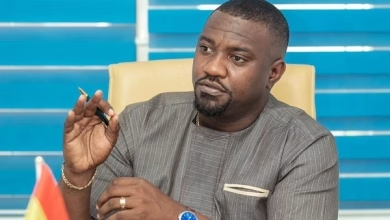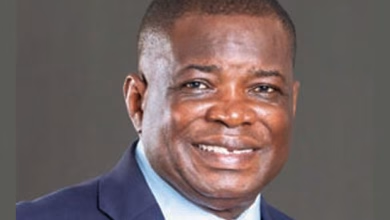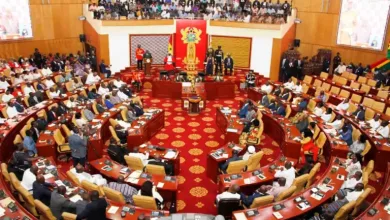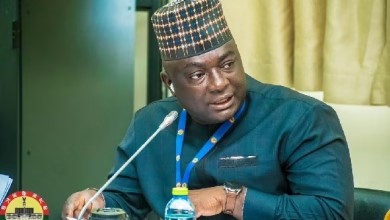“Fitch Solutions: NDC Has Upper Hand in 2024 General Elections”
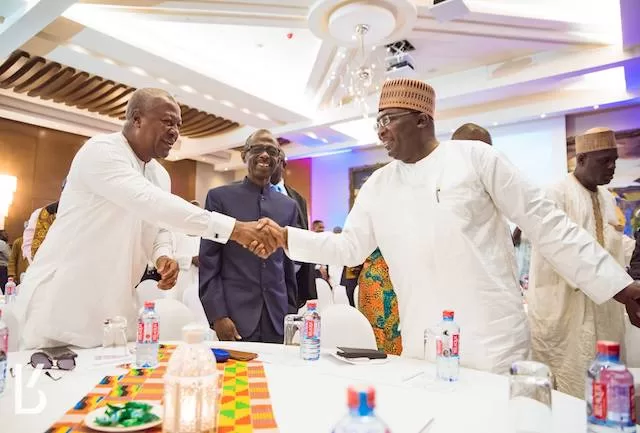
- Fitch Solutions predicts John Mahama and the NDC could win Ghana's 2024 elections.
- Voter decisions will be influenced by economic issues like job creation and management.
- Fitch Solutions' prediction is based on thorough data analysis.
- Discussions center on governance effectiveness and economic stability under potential new leadership.
In a recent report released by Fitch Solutions, an esteemed international research and data firm based in London, significant predictions have been made regarding Ghana’s upcoming 2024 general elections. Fitch Solutions has maintained a consistent forecast since last year, suggesting a probable victory for John Mahama and his party, the National Democratic Congress (NDC). According to their latest findings, a substantial 54% of the respondents surveyed have indicated their preference for the former president to emerge victorious in the presidential election scheduled for December. This projection underscores the growing sentiment favoring a change in leadership amidst prevalent economic challenges in the country.
Mike Kruiniger, Associate Director of Country Risk at Fitch Solutions, emphasized the factors influencing this forecast during the firm’s mid-year review for Sub-Saharan Africa. He highlighted that Ghana’s current economic climate will serve as a pivotal determinant in shaping voter decisions come election day. Kruiniger articulated Fitch Solutions’ perspective, stating, “We believe that the opposition National Democratic Congress (NDC) holds a stronger position to win the upcoming general elections compared to the ruling New Patriotic Party (NPP). Recent polls consistently place the NDC ahead, with the latest survey revealing 54% of respondents favoring the NDC.”
The outlook presented by Fitch Solutions underscores the critical role of socio-economic issues such as job creation and economic management in influencing voter sentiment. Kruiniger elaborated on this point, noting that these concerns are likely to weigh heavily on the minds of voters as they cast their ballots. “Economic management and job creation are projected to be the most crucial issues during the election,” he remarked. The assessment suggests that the ruling NPP may face inherent challenges due to perceived shortcomings in addressing the country’s economic difficulties over recent years.
Ghana’s economic landscape has been marred by persistent challenges, including inflationary pressures, fiscal deficits, and fluctuating commodity prices. These factors have contributed to widespread discontent among the populace, shaping a narrative favoring a potential change in leadership. Fitch Solutions’ analysis aligns with broader sentiments within the electorate, which increasingly prioritize pragmatic solutions to economic woes over political rhetoric.
Moreover, Fitch Solutions’ predictions are grounded in rigorous data analysis and historical electoral trends within Ghana. The firm’s methodology integrates comprehensive polling data and economic indicators to provide a nuanced perspective on the electoral dynamics shaping the country’s political landscape. This approach underscores the firm’s credibility in forecasting electoral outcomes across various global contexts.
In response to Fitch Solutions’ forecast, political analysts and stakeholders within Ghana have begun to scrutinize the implications of a potential NDC victory. Discussions have centered on the party’s proposed policies and their viability in addressing the nation’s economic challenges. This scrutiny reflects a broader discourse on governance effectiveness and the electorate’s expectations for tangible improvements in living standards and economic stability.
Looking ahead to the December elections, the contest between the NDC and the NPP is expected to intensify as both parties articulate their respective visions for Ghana’s future. The incumbent NPP, despite facing economic headwinds, remains steadfast in its commitment to implementing reforms aimed at stimulating growth and mitigating socio-economic disparities. Conversely, the NDC under John Mahama’s leadership has positioned itself as a credible alternative, promising a return to policies believed to promote inclusive growth and equitable development.
Fitch Solutions’ forecast of a potential NDC victory in Ghana’s 2024 elections underscores evolving voter sentiments and socio-economic priorities. As the campaign season unfolds, both major political parties are poised to engage in robust debates and policy discussions aimed at capturing the electorate’s confidence. The outcome of these elections will not only determine the future leadership of Ghana but also shape its socio-economic trajectory in the years to come.



